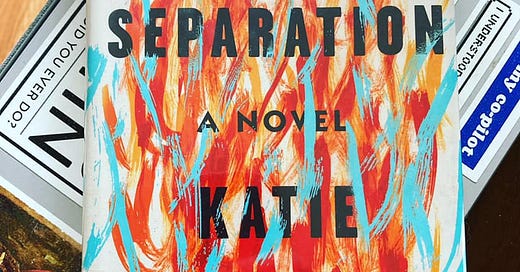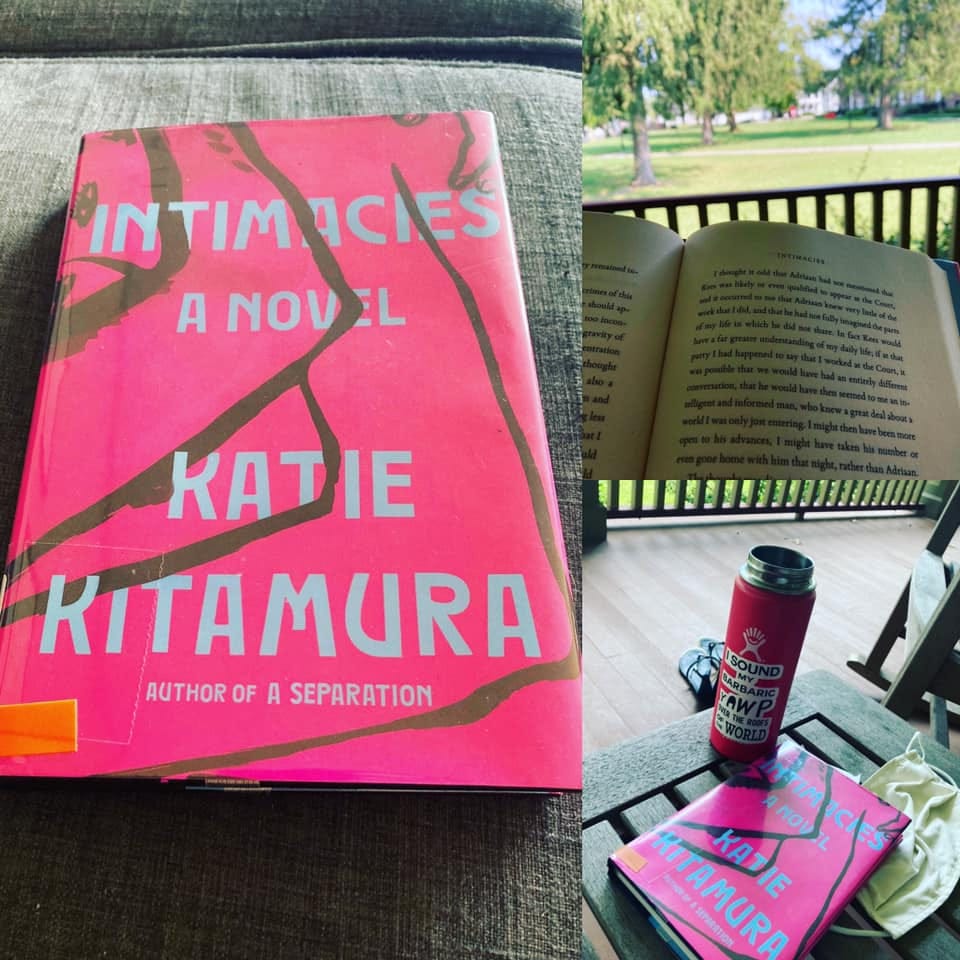"Intimacies" and "A Separation" by Katie Kitamura
Novels on a theme, and good enough for a President.
Just as fall brings the Serious Movies to our movie screens, so too does fall bring a desire for more Serious Books to read by the fire or read in the classroom. What I love about Katie Kitamura’s novels is that they are well-plotted and sexy enough to be considered “beach reads” (by a President, natch, but still) but also brainy enough to be read fireside by sweater-wearing fans of literary fiction. So this late summer-early fall interval seems like the ideal time to pick up “A Separation” or “Intimacies.”
“A Separation” starts from a plot-driven place: a wife goes on a journey to find her errant husband, from whom she is in the process of separating, who has disappeared on a research trip to Greece. As I followed the plot, I was surprised to find myself on a philosophical journey as well—about marriage, memory, desire—one that asks big questions for such a slim volume. Ultimately, the book explores the question of what we do when we have been separated—through time, divorce, death, mischance—from someone we once loved. It’s also a novel about fidelity—to a partner, to the past, to a shared belief, to an idea of a person—in all of its forms. I found myself surprised and moved by this story; it reminded me at times of Somerset Maugham (especially The Painted Veil) and Milan Kundera, both brainy romantics who love to write about the tantalizing, agonizing impossible.
“Intimacies” dwells on some of the same themes/tropes as “A Separation,” but this time Kitamura looks not only at what separates people but also at what makes people intimate with one another. In both novels there is a love triangle; an unexplained disappearance; and a journey to another country. In “Intimacies,” the novel’s narrator has recently moved to The Hague to work as a translator in an international court, where she is tasked with sitting in on trials and translating the words of both the victims and perpetrators of war crimes. At the same time, she is beginning a relationship with a man who may or may not be fully available to her. What I really like about Kitamura’s writing is that she takes a word—“intimacy” or “separation”—and uses the plot of her novels to examine all of the unexpected nuances of that particular word. In this novel she weaves a story that dips into intimacy between family members, spouses, lovers, colleagues, friends…. Perhaps most interestingly, by having a translator as her protagonist, Kitamura also develops a story that foregrounds questions of linguistic intimacy, both desired and not. This book is going to stay with me a while and I’ll enjoy turning it over in my mind. And if you don’t take my word for it, President Obama liked it too.




